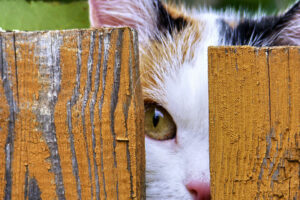SINGAPORE – Sunny prides herself on being a law-abiding Singaporean citizen, but for the last three years, she’s been hiding a feline fugitive called Mooncake.
The fluffy ragdoll lives with Sunny in defiance of a 34-year-old law banning cats in the government-built apartments that house the vast majority of Singaporeans. Luckily for Mooncake, Singapore plans to scrap the ban later this year, freeing Sunny from the threat of a S$4,000 ($3,007) fine or her pet’s potential eviction.
“Cats are so much quieter than dogs. If they allow dogs, I don’t understand why not cats,” said 30-year-old Sunny, who works in marketing and asked to be identified only by her first name because she didn’t want to risk her cat being taken away.
Authorities rarely enforce the ban, which only applies to the high-rise Housing and Development Board (HDB) apartment blocks where 80% of 3.6 million Singaporeans live, and it has long been flouted by countless cat lovers.
The ban does, however, make things difficult: because they technically shouldn’t exist, HDB pet cats like Mooncake are not eligible for pet insurance. Lawmaker Louis Ng, who has campaigned to revoke the ban, said the regulation sometimes becomes leverage for warring neighbors.
“A lot of times, the cats are collateral when there’s neighborly disputes,” he said. “The neighbor will just say: ‘Oh you’re keeping cats, I’ll go and alert (the authorities)’.”
“CATERWAULING”
Singapore’s ban on cats in HDB housing is yet another example of the city-state’s infamously exacting rules-based culture, in which, for example, the sale and import of chewing gum remains banned.
Established in 1960, the HDB scheme sells government-built units directly to qualified citizens on 99-year leases. It has led to one of the world’s highest home-ownership rates, but residents are subject to many restrictions and regulations.
Cats were allowed in HDB flats until parliament amended the housing law in 1989. On its website, the HDB justifies the ban by saying that cats are “difficult to contain within the flat … they tend to shed fur and defecate or urinate in public areas, and also make caterwauling sounds, which can inconvenience your neighbors”.
It’s not clear what made the Singapore government change its mind, but the tipping point appears to be an official survey in 2022 that showed 9 out of 10 respondents agreed that cats were suitable pets to keep, including in HDB flats.
The authorities are now surveying members of the public on the “proposed cat management framework” which should come into place later in 2024.
Dogs have not been subject to a similar ban, but they are limited to one per household and only certain breeds and sizes can be kept as pets: ‘yes’ to miniature poodles, ‘no’ to golden retrievers, for example.
Market research firm Euromonitor International has predicted a surge in cat ownership. In a report on prospects for cat food companies, it estimated Singapore’s current pet population at around 94,000 cats and 113,000 dogs.
Lawmaker Ng, who ran an animal welfare group before joining parliament in 2015, also hopes the change will lead more people to adopt rescued cats.
Under the new framework, HDB residents would be limited to two cats. It also mandates licensing and microchipping cats, as well as installing mesh screens on windows so cats don’t fall out.
Some cat lovers say the new regulations don’t go far enough.
Thenuga Vijakumar from the Cat Welfare Society wants the law to mandate sterilization. Cat rescuer Chan Chow Wah, 50, also wants penalties for irresponsible owners. He said he had to take care of a cat that fell from the third-story and whose owners refused to pay its medical bills, as well as another cat that was abandoned after being diagnosed with heart disease.
“I end up taking over these cases. Basically, I look after them until they pass away,” said Chan, estimating he spent S$60,000 ($45,100) on vet bills in 2022.
But for many cat owners like Mooncake’s “mama” Sunny, the law is a blessing that will bring her peace of mind.
“I think it’s a good thing and it’s a step forward after 30 years,” she said. – Reuters








